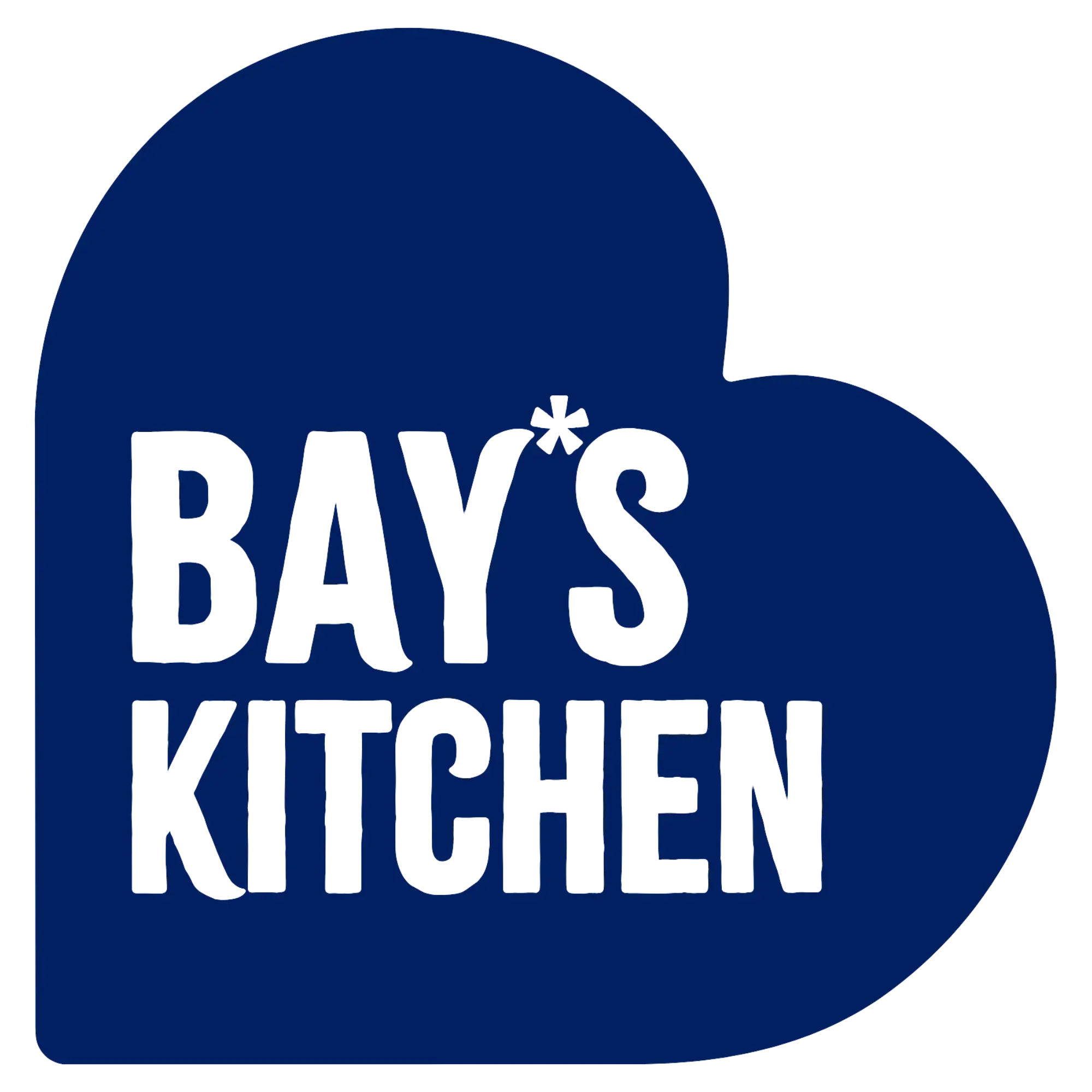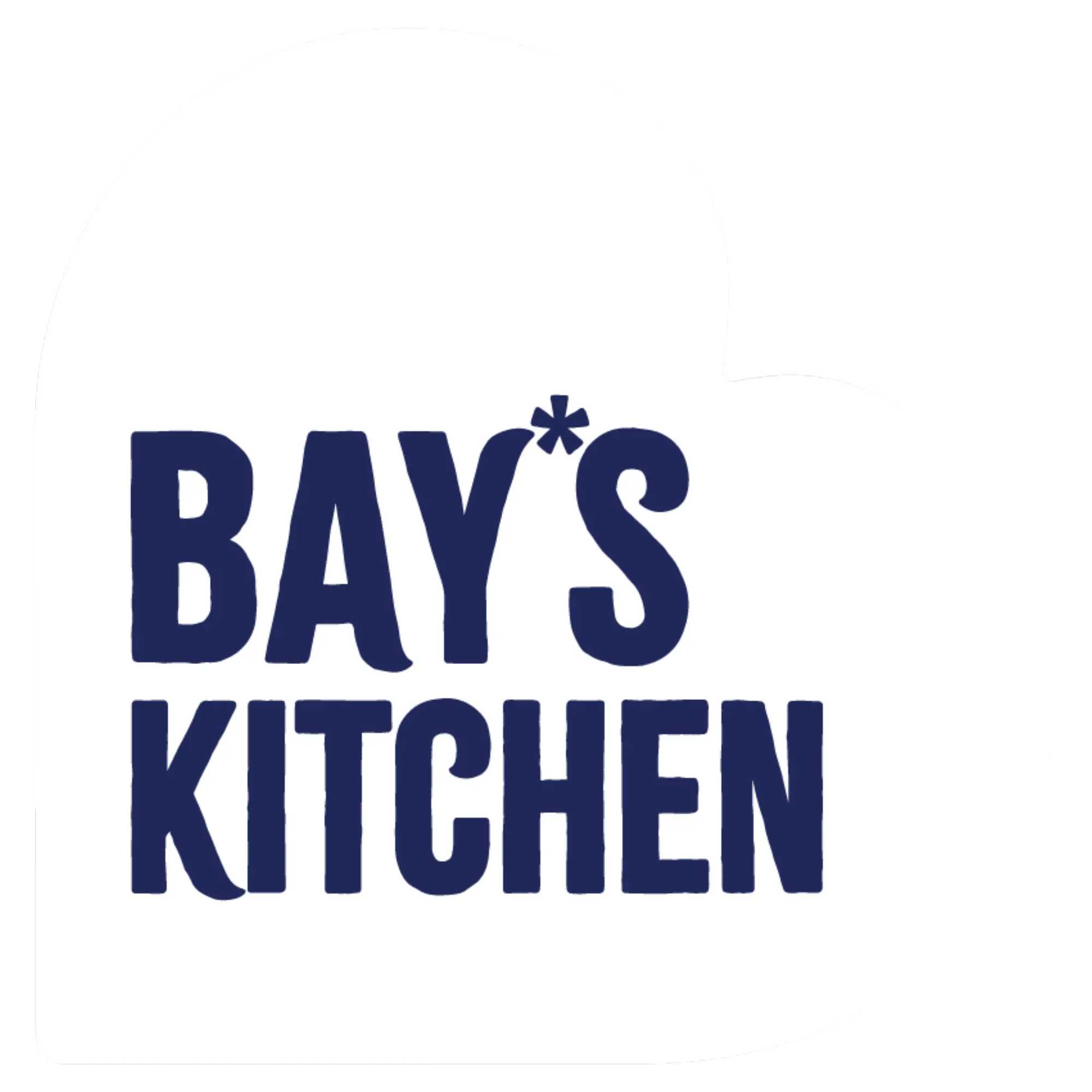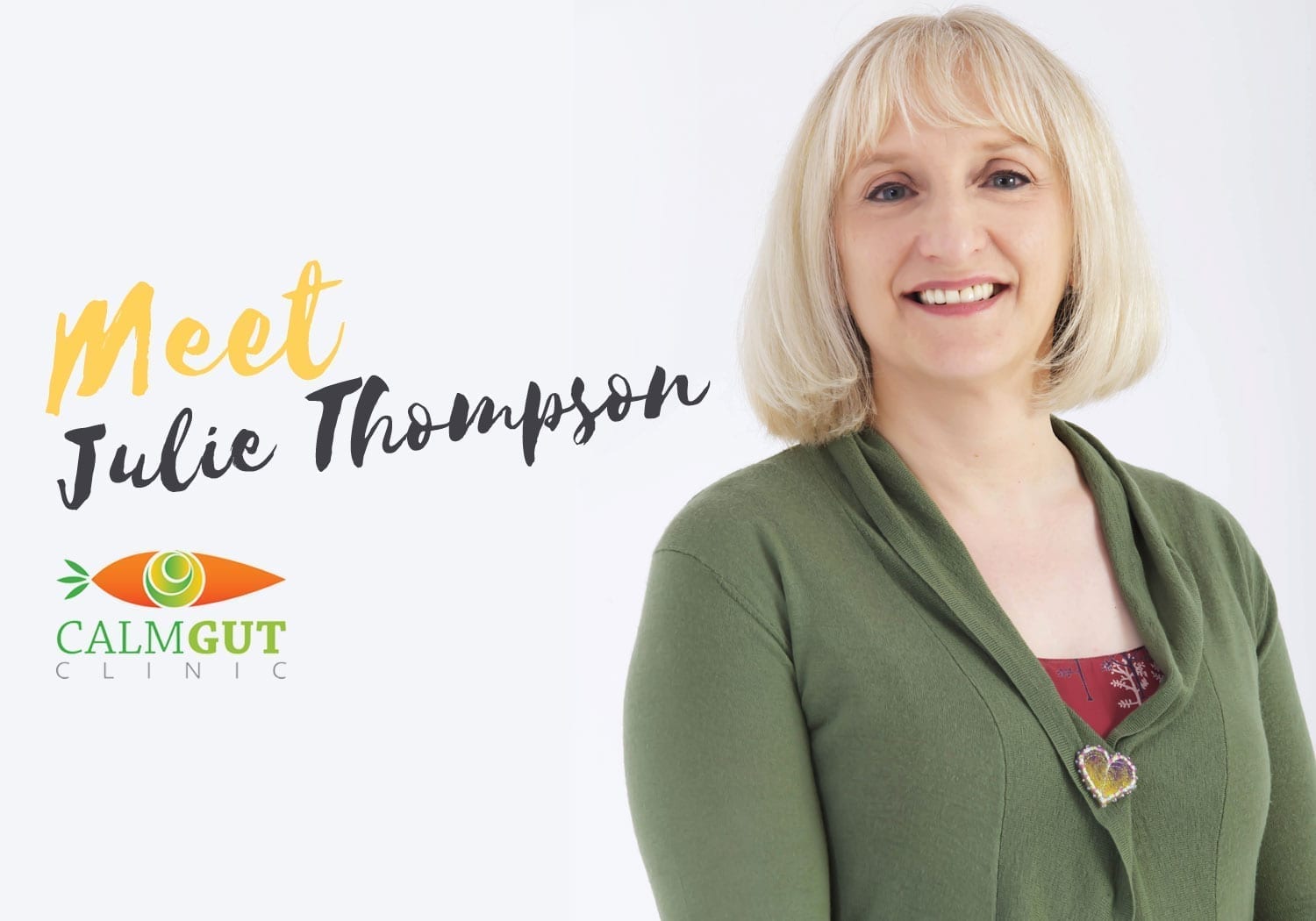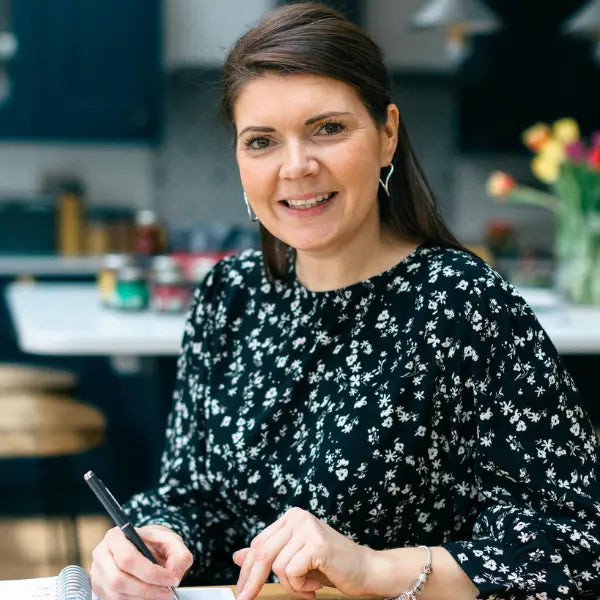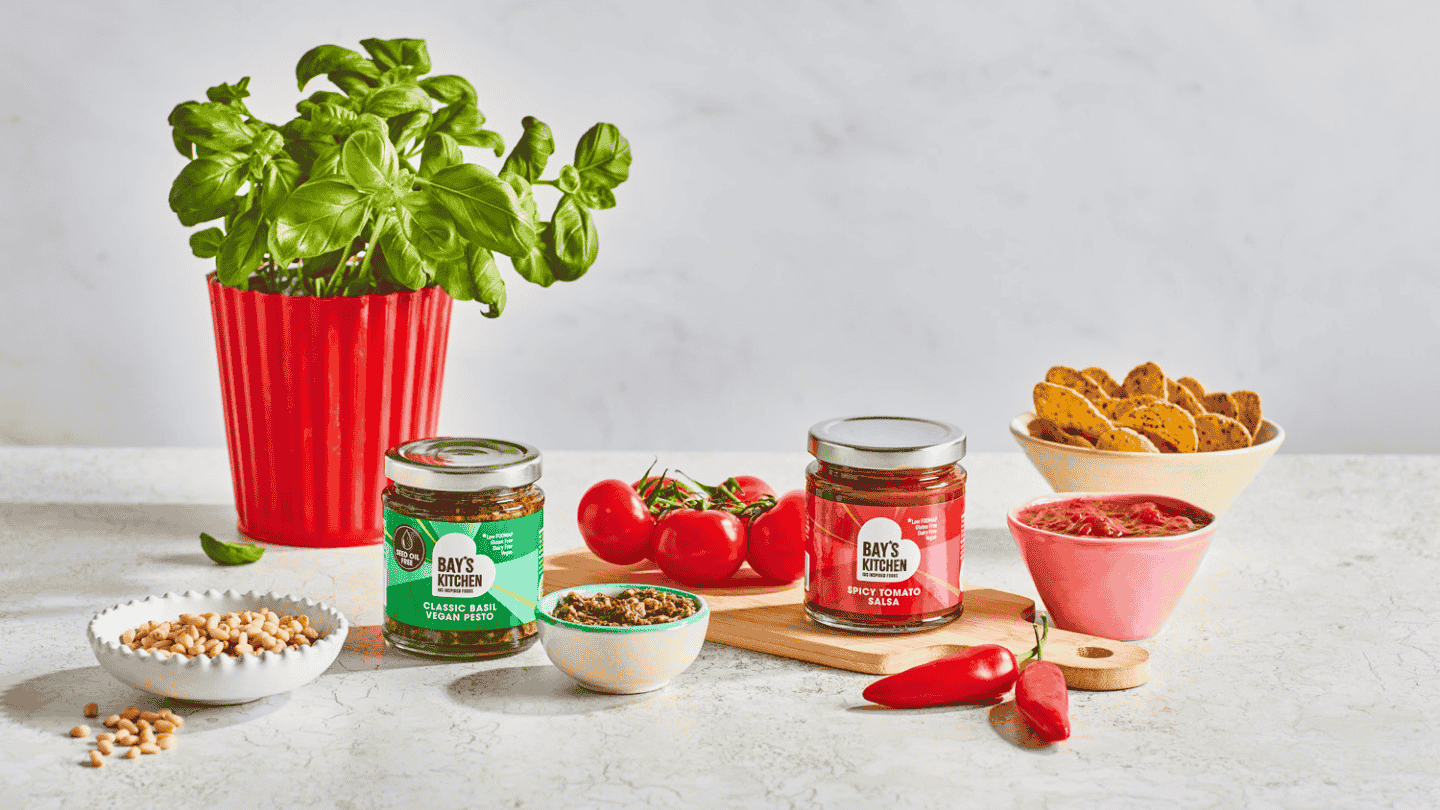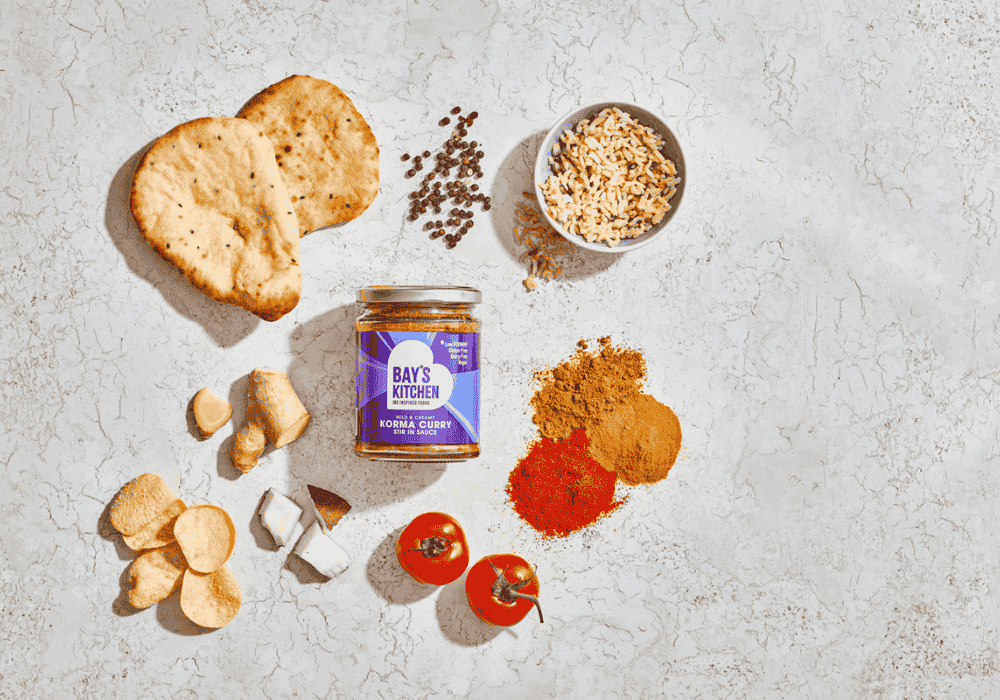Julie Thompson is a UK specialist IBS dietitian working in the NHS and private practice. She has been involved in the development of dietary guidelines for IBS in the UK and with colleagues published a review of probiotics for IBS. Julie has worked with people with IBS at a specialist level for eight years and is passionate about people getting access to the correct treatment. We asked Julie some questions on IBS and Low FODMAP…
How long have you been working for the IBS Network? What’s your main role for the IBS Network?
I have worked as a diet advisor for the IBS Network since 2011 and during this time I have also worked as a communications manager for the charity and been on working groups for the development of quality standards of care for people with IBS at the National Institute of Health and Care excellence (NICE). I was also very much involved in social media for the IBS Network – but my role now is as one of the diet advisor and I also attend bimonthly advisory board meetings at Sheffield.
Currently, the Low FODMAP Diet isn’t too well known in the UK, do you think this is changing? Will it become as big as ‘Gluten Free’ in your opinion?
This is very much a changing arena and food manufacturers are becoming more interested in the Low Fodmap diet – it may become as big as the gluten free diet, which would be great for choice, but there is a danger in that too, perhaps. It is important that the diet is very much seen as a diet for people who have been diagnosed with IBS and had the correct tests for diagnosis. It should not be used by people who are looking to change their diets for purely health reasons or for self-diagnosis purposes and I feel that manufacturers have a responsibility to promote the message that the low fodmap diet is specifically for people with IBS. We are some tens of years behind the gluten free diet in commercial production of specifically labelled low fodmap foods – but every year for the past two or three years has seen more companies attending the Allergy & Free From Show with products specifically targeted at the low fodmap diet, so I think the future is definitely looking promising.
"When diagnosed with IBS, I was told to follow a Low FODMAP Diet but not given any support with this. I asked to be referred to a dietician but they said they couldn’t refer me. If people find themselves in a similar position and can’t afford to pay privately for a dietician, do they have any other options for seeking help?"
Unfortunately, in the UK some healthcare practitioners are providing food lists printed from internet sources as sole dietary treatment. We don’t know what the effectiveness is for using diet sheets from the internet and this can mean that people follow the diet with incorrect advice, as it is often out of date. It is entirely possible that this means of following the diet doesn’t work as effectively – people can then feel that diet isn’t going to work for them. It also can result in people following the diet long term, which is also not advisable.
What should happen on diagnosis of IBS is ‘first line’ dietary advice should be given by your healthcare provider – this can be effective in reducing symptoms for around half of people with mild to moderate IBS – not everyone diagnosed will need a full low fodmap reduction diet. This diet sheet can also be used whilst someone is waiting for referral and does in fact reduce some intake of fodmap containing foods. A free diet sheet is available from the British Dietetic Association https://www.bda.uk.com/ which gives further information about the first line advice – view the page called ‘Food Facts’.
If this advice is not effective then people should then be referred to a dietitian. The NICE IBS quality standard three is clear that people should be referred to a trained professional (a registered dietitian) for help with exclusion diets. If people are aware, then they can use this information to support a request for a referral – please see here for the link to the document https://www.nice.org.uk/guidance/qs114.
Healthcare practitioners are sometimes unaware of the full scope of work of their local dietetic department and can assume that services are not available, when they are. Also, healthcare practitioners can be reluctant to refer because they don’t want to overwhelm the services that are already available. Some dietetic departments are providing group education sessions – so can in fact see many more people for advice. Dietitians can also see you to advise on the re-introduction part of the low fodmap diet if you have already reduced your intake. You can always telephone or email your local dietetic department to enquire about services – most hospital websites have contact details – but most departments are currently unlikely to be able to be accept self-referrals unfortunately. If they don’t provide a service then do ask them why not.
If you are given a diet sheet from your doctor I would advise printing of the quality standard three about the low fodmap diet and going back to your healthcare provider to ask again for a referral as ‘you are finding the diet just too difficult to follow on your own’ this can often lead to a referral. There are apps available that can be very useful from Monash and food maestro, they can also be useful when there is a long waiting list for treatment – but there is no real substitute for tailored advice from a dietitian. Another point of consideration is that it can sometimes be assumed that private practice is very expensive – it is always worth asking about costs of treatment, as it may be cheaper that you might expect and some professionals are offering online sessions to allow people to have better access to treatment.
Some people on a Low FODMAP Diet want to lose weight, whilst others may need to gain weight – is it possible to do both?
This is possible perhaps but every individual’s situation is different and they will need to take specific advice – if someone is underweight and is losing weight they should request a referral to a dietitian to prevent further weight loss. A dietitian can also help people to follow the low fodmap diet if they have other dietary requirements such as diabetes.
What key tips would you provide your clients with who are following a Low FODMAP Diet?
Don’t just jump into following the diet immediately – read the information carefully and plan what you are going to eat. This does take a little time but makes the diet easier to follow and a better experience all round!
Try and vary your choices of low fodmap foods whilst following the low fodmap diet as much as you can, to ensure your diet is healthy and balanced. Check your food labels well and don’t just assume that it is low fodmap.
If you are seeing a dietitian and you are struggling with following the diet in-between appointments please do contact them and ask for help. They are more than happy to help you and would assume you would ask if you are struggling.
Don’t just buy food from the ‘free from’ section of the supermarkets, check out the rest of the store, as the most expensive items are usually found in the ‘free from’ section and they are not always suitable – lots of other food in store is suitable and some of these are staple cheap items.
What’s your favourite Low FODMAP recipe?
I do inform people to use relevant variable recipe sources in clinic but I don’t make other people’s recipes as I am too busy developing my own! If I am able to be a shameless self-publicist and choose one of my own recipes then the following is my favourite – smoked maple chicken traybake… a real tasty celebration dish! You can view the recipe here.
So much useful information from Julie! We hope you enjoyed reading the full interview.
You can find the IBS Network here: https://www.theibsnetwork.org/
